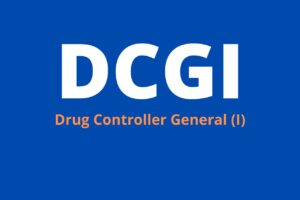Last Updated on October 10, 2024 by The Health Master
Antimicrobials
In a noteworthy move, the Centre has urgently appealed to doctors, emphasizing the need for precision in prescribing antimicrobials.
This appeal, conveyed through a letter from the Director General of Health Services (DGHS) Atul Goel, addresses the crucial role doctors play in curbing the misuse and overuse of antimicrobials, particularly antibiotics.
Understanding the Directive
The DGHS has issued directives to all medical colleges, pharmacists, and medical associations across the country.
The primary focus is on implementing Schedule H and H1 of the Drugs and Cosmetic Rules, 1945.
While pharmacists are reminded to sell antibiotics only on valid prescriptions, doctors are urged to go a step further.
1. Importance of Indications
In the directive, an urgent appeal is made to all doctors to mandatorily mention the exact indication, reason, or justification when prescribing antimicrobials.
This step aims to enhance accountability and ensure a more targeted and effective use of these drugs.
2. Extending the Directive
The outreach of this appeal extends beyond medical colleges.
All medical associations have received a similar letter, emphasizing the collective responsibility in addressing the issue of antimicrobial resistance (AMR).
The DGHS has also separately communicated with pharmacists’ associations to reinforce the adherence to Schedule H and H1.
Significance of Curbing Misuse
Antibiotics, antivirals, antifungals, and antiseptics, collectively termed antimicrobials, are critical in preventing and treating infections.
However, their misuse contributes significantly to the emergence of drug-resistant organisms.
This misuse, often driven by the overuse of antibiotics, poses a serious threat to global health.
3. The Global Impact of AMR
The DGHS, in his letter, underscores the global impact of antimicrobial resistance.
With an estimated 1.27 million global deaths directly attributed to AMR in 2019, it is imperative to take swift and collective action.
Moreover, nearly 4.95 million deaths were associated with drug-resistant infections, highlighting the urgency of addressing this issue.
4. Prudent Antibiotic Use
Acknowledging the limited availability of new antibiotics in the research pipeline, the DGHS advocates for prudent antibiotic use.
This, he contends, is the only viable option to delay the development of resistance.
The importance of responsible prescription practices cannot be overstated, considering the potential consequences of treatment failures.
Challenges and Consequences
The threat of AMR goes beyond the immediate health implications.
Longer periods of infectivity, coupled with the high cost of second-line drugs, pose challenges to effective disease management.
5. Treatment Failures and Infectivity
Failure to address AMR can result in treatment failures, leading to prolonged periods of infectivity.
This, in turn, heightens the risk of diseases spreading and becoming more challenging to manage.
6. Economic Implications
The prohibitive cost of second-line drugs, as highlighted by the DGHS, can have significant economic implications.
Inability to afford these drugs may lead to treatment gaps, impacting individuals and communities.
Disclaimer: This article contains information derived from the source mentioned below. Our team utilized an AI language model to rewrite and present the news or article in a unique format.
FAQs
Q1: Why is it essential for doctors to mention indications while prescribing antimicrobials?
A1: Mentioning indications enhances accountability and ensures targeted and effective use of antimicrobials, contributing to the global fight against drug-resistant organisms.
Q2: What is the significance of Schedule H and H1 in the directive?
A2: Schedule H and H1 of the Drugs and Cosmetic Rules, 1945, regulate the sale and record-keeping of antibiotics, particularly high-end ones, to curb misuse.
Q3: How does antimicrobial resistance impact global health?
A3: Antimicrobial resistance directly contributes to millions of deaths globally, emphasizing the urgent need for responsible prescription practices.
Q4: Why is prudent antibiotic use crucial in the current scenario?
A4: With few new antibiotics in development, prudent antibiotic use is vital to delay the development of resistance, according to the DGHS.
Q5: What are the potential consequences of treatment failures related to antimicrobial resistance?
A5: Treatment failures can result in prolonged infectivity periods, increased disease spread, and economic challenges due to the cost of second-line drugs.
USUDA declines to approve this migraine drug
The Pharma Conclave held in Hyderabad: Unlocking Pharma Potential
USFDA issues EIR to Indoco Remedies for Goa Plant-1
CDSCO: NSWS Portal Expands Services for Pharma and Medical Devices
CDSCO approval granted for Clinical Trials of XBB.1.5 Vaccine
CDSCO approval granted for this breast cancer treatment drug
USFDA inspection: Key Agendas and Expectations
Unveiling the Battle Against Spurious Drug: Telangana
IPC Alert: A Deep Dive into Mefenamic Acid and its reactions










